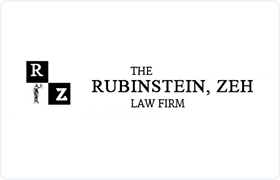 Wainscott Trusts Lawyers, New York
Wainscott Trusts Lawyers, New York
Sponsored Law Firm
-
 x
x

Click For More Info:
-
The Law Firm of Rubinstein, Zeh and Associates
445 Broadhollow Rd. Suite CL-10 Melville, NY 11747» view mapEstate Law Full Service Law Firm
The Law Firm of Rubinstein, Zeh and Associates has built its practice primarily on word-of-mouth among our clients and the trusted referrals from our colleagues.
800-960-1529
Warning! No lawyers found in this specified area.
Lawyers
1-0 of 0 matches



 Christine Rubinstein Melville, NY
Christine Rubinstein Melville, NY AboutThe Law Firm of Rubinstein, Zeh and Associates
AboutThe Law Firm of Rubinstein, Zeh and Associates Practice AreasExpertise
Practice AreasExpertise